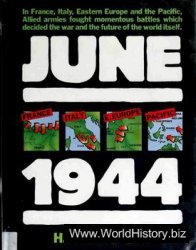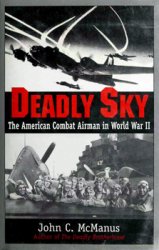Venezuela is able to generate a large proportion of its wealth not from manufacture but by extracting oil from among the most productive oilfields in the world. Oil contributed 90 per cent of its export earnings in the 1980s and nearly a third of its gross national product. Agriculture plays only a small role in the economy. In the 1960s it overtook Argentina as the wealthiest country in Latin America. In 1987 its population of 18.3 million was estimated to have a gross per-capita income of US$3,230. The two oil-price explosions in 1973-4 and 1979-80 brought enormous new wealth and enabled it to diversify industrially into petrochemicals, iron, steel, paper, and the aluminium industry. Western bankers fell over themselves to provide credit. Caracas acquired the skyscrapers of a twentieth-century city. And yet by the close of the 1980s Venezuela too was beset by the severe problems common to the rest of the continent. Oil prices stagnated and fell back, and Venezuela was unable to meet the scheduled payments to service its large debt. Its economy was over-extended. The bonanza of ‘black gold’ did not benefit everybody.
Caracas in the 1990s was surrounded by some of the worst slum townships in Latin America, and there was a high birth rate among the poor. Despite the best system of roads in Latin America, the countryside was cut off and the number of Venezuelans making their living from it dropped rapidly from 40 per cent in 1950 to 18 per cent in 1980. The peasantry, largely landless, survived in conditions not much better than servitude; three-quarters of the land was held in large estates, despite land reforms introduced in the 1960s.
Although from the 1920s until the Second World War, Venezuela was the largest oil exporter, and in the early 1990s still ranked among the top producers, comparative wealth and economic development did not go hand in hand with enlightened politics and social policies.
Until 1958, Venezuela was renowned for being a country under the control of military caudillos. By shrewd manipulation a prosperous cattle raiser and coffee grower Juan Vicente Gomez had managed to make himself one of Latin America’s longest-surviving dictators, remaining in office from the time he seized power in 1908 until his death in 1935. This was a remarkable effort, accompanied by corruption and selfaggrandisement. By the time of his death Gomez had acquired land equivalent in extent to Denmark and the Netherlands put together. However, Venezuela’s development, based on the oil industry, allowed a new professional and middle class to emerge, who were excluded from power by the landed elite and the military. They turned for support to the peasant masses and formed the Accion Democratica Party under the leadership of Romulo Betancourt. In 1945, with the appearance of democratic government very much the fashion, Betancourt and his Accion Democratica seized power with the help of disgruntled members of the military. Reforms were attempted - land reform for the peasantry and an extension of the franchise in the constitution of 1947. Elections followed. But the military and landed elites threw out the newly elected president Romulo Gallegos in November 1948 and for ten years Venezuela was ruled by the military. Under Perez Jimenez (1953-8) the opposition was suppressed. ‘Stability’ suited the foreign, especially US, oil interests in Venezuela, and foreign technocrats developed the industry under Jimenez’s benevolent eye.
In 1958 Jimenez and his corrupt government were overthrown in a military coup which for once had popular support, and Betancourt returned from exile. Vice-President Nixon arrived in Caracas on a Latin American goodwill mission to a rough reception from a stone-throwing crowd which identified the US as the principal supporter of the former dictator Jimenez. The elections held in 1959 were won by the Accion
Democratica Party, and Betancourt became the first president to complete his term of office, surviving many assassination attempts. The democratic process was at last striking firm roots, with peaceful transfers of presidential powers in subsequent elections. As far as land reform was concerned, however, the drive had gone out of the Accion Democratica, and the more conservative Christian Democratic Party, with which it alternated in power, blocked reform anyway. But in both health care and education, Venezuela made significant progress during the Betancourt years.
The man who made the biggest impact on domestic politics was Carlos Andres Perez, who became president in 1974 and nationalised the iron and steel industry and the foreign-owned, mainly US, oil companies. Venezuela was distancing itself from US economic and political hegemony. Joining with Mexico, Colombia and Panama in the ‘Contadora’ peace initiative to bring peace to Nicaragua and the other Central American states rent by guerrilla wars was another attempt to organise Latin American affairs without US intervention.
From the mid-1980s Venezuela faced grave problems economically, with the fall in oil prices and the burgeoning foreign debt. Carlos Andres Perez returned as president after winning the election in 1988, but his introduction of an austerity programme in 1989 led to rioting in Caracas that left 300 dead. He had won the election on his promise to ease Venezuela’s debt repayments. The oil-price rises of 1990 lightened the burden, but as long as Latin American states remained heavily dependent on the unpredictable price fluctuations of one or two commodities, while carrying large debts from earlier profligate development plans, their economies would remain precarious. The hardship caused by economic reform and austerity programmes repeatedly threatened the democracies with social unrest. The unequal distribution of wealth aggravated the problem. Despite a spurt of growth again in Venezuela in 1991, profits failed to trickle down to the poor. Early in the following year, Perez’s popularity had sunk very low and disaffected elements in the army, hit by declining wages, attempted a coup. Perez was attempting to reform the democratic process shot through with corruption. Narcotics became a major export besides oil. In hard times the people became disillusioned with their unprincipled democracy.
A small group of Venezuelans had filched the benefits of the potential oil riches while 80 per cent of the people remained poor. When oil prices slumped again after 1997 and Venezuela’s economy plunged into disarray, there was a popular upsurge against the corrupt politicians and institutions that had ruled Venezuela for forty years under the guise of democracy. In the elections of December 1998 they turned to a populist leader who promised revolutionary change. Hugo Chavez won a landslide victory and at first was carried forward by a surge of unprecedented popularity for his ‘promised revolution’. An exmilitary colonel, Chavez sports a paratrooper’s red beret on his campaigns. Folk hero to the poor, his failed attempt at a military coup had landed him in prison for two years in 1992. Now he was the legitimate president. Venezuelan politics were thrown into turmoil as he battled the established political elites in Congress and the Supreme Court with the introduction of a new constitution and Assembly packed with his own supporters. In April 2002 he was briefly overthrown by an army coup but, with popular support, regained office.
Brazil, Uruguay, Argentina and Venezuela, 2000
|
Population (millions) |
GDP (US$ 1,000 million) |
GDP Per head (US$) |
GDP per head, Purchasing Power Parity (US$) | |
|
Brazil |
170.4 |
596.0 |
3,490 |
7,300 |
|
Uruguay |
3.3 |
19.7 |
5,800 |
8,800 |
|
Argentina |
37.0 |
285.0 |
7,700 |
12,000 |
|
Venezuela |
24.2 |
121.0 |
4,980 |
5,700 |
The economy did not improve, mismanagement and Chavez’s authoritarian attempts to govern and introduce reforms, a catalogue of turmoil and failure, led to constitutional efforts to force a referendum and an early election by the opposition joined by the trade unions. Until 2004 Chavez blocked all efforts to force his hand. The counter of the opposition was to call a general strike. For weeks until February 2003 industry was paralysed including the state oil industry. Chavez weathered the industrial assault but the prospects for the people are grim. The economy threatened to grind to a halt. In 2004 Chavez convincingly won the recall referendum. Populist nationalist, stridently anti-American at odds with his Latin American neighbours whose efforts to mediate have failed, the future remained clouded. The failure of a sound political structure and the endemic corruption have blighted Venezuela.




 World History
World History









